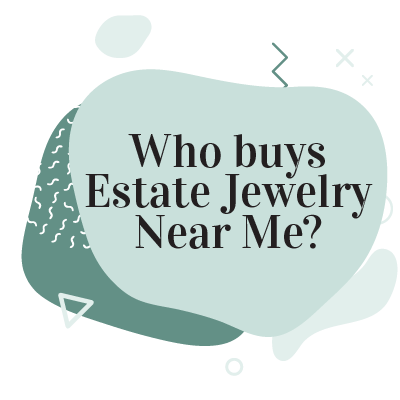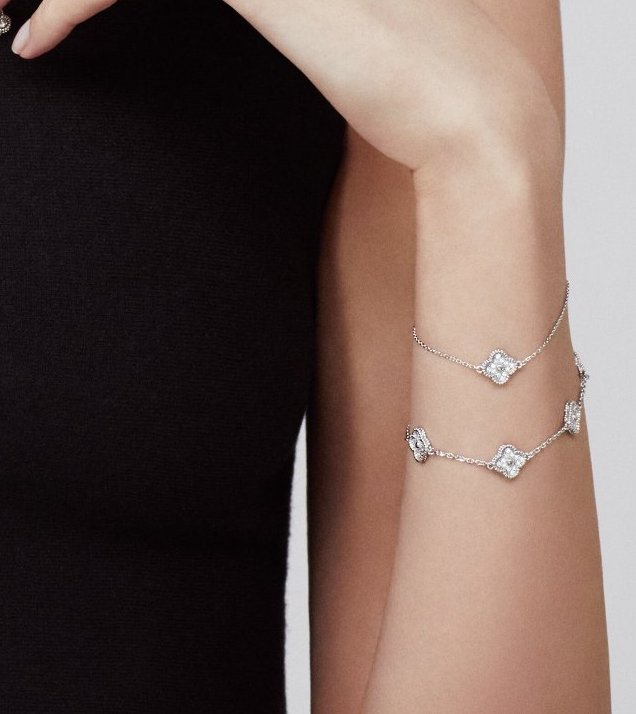Why ‘Who Buys Estate Jewelry Near Me’ Is the Wrong Question to Ask
When trying to sell jewelry, many people head straight to Google, typing ‘Who buys estate jewelry near me?’ and expect a good result.
But here’s the kicker: that’s definitely not the question you should be asking.
In this guide, we’ll show you why and give you the insights and strategies to ensure you’re not just selling, but selling smart.
So, if you want to sell your estate jewelry, let’s debunk some myths, share some trade secrets, and ensure your sale is a success.

The Allure of Convenience
When people decide to sell jewelry, there are generally three things that they are looking for:
- Safety
- Convenience
- A fair price
This is where the appeal of local businesses comes into play.
Choosing a a nearby jewelry store allows you to check it out in advance, ensure it has a decent reputation and have a face-to-face conversation with the person on the other side of the transaction.
It’s straightforward, quick, and uncomplicated, in short: convenient.
But a safe and convenient transaction doesn’t always translate to the best deals or the most expert evaluations.
The Convenience Trap
Estate jewelry, with its history and nuanced characteristics, is almost certainly better appraised by a specialist that understands its intricate value.
Consider this: you have a diamond ring, a family heirloom that you decide to sell. Your local jeweler, just a short drive away, might evaluate its worth based on its apparent weight and size.
They could miss out on its distinctive cut, its historical relevance, or even the uncommon nature of the diamond.
On the other hand, a specialist, even if located miles away, might see its authentic value, potentially offering a significantly higher price.
In the digital age, the search for convenience can sometimes limit opportunities, especially when the broader market is just a click away.
When Searching ‘Who Buys Estate Jewelry Near Me’ Can Be the Correct Question to Ask
While we’ve discussed the potential pitfalls of limiting one’s search to local buyers, there are situations where proximity can be the most important factor.
In the next section, we’ll take a look at some scenarios where asking ‘Who buys estate jewelry near me?’ might be the most appropriate and beneficial question.

Situations Where Proximity Matters
Immediate Financial Needs
Life can be unpredictable. There might be situations where you find yourself in urgent need of cash, be it for medical emergencies, unexpected bills, or other pressing financial obligations.
If that’s the case, the immediacy of the transaction may take precedence over the potential of a higher price. A local jeweler or buyer can offer a quick turnaround, providing funds when they’re most needed.
Physical Limitations
For many, especially the elderly or those with mobility challenges, traveling to distant buyers or navigating the complexities of shipping can be challenging.
In these instances, a local transaction becomes not just a convenience but a necessity.
Lack of Online Savviness
The digital age has undoubtedly expanded the horizons for buying and selling. However, not everyone feels at ease with online platforms. For individuals who aren’t tech-savvy or those who simply prefer traditional methods, a local buyer remains the most accessible and straightforward option.
Safety Concerns
The idea of shipping a valuable piece of jewelry to an unknown online buyer can be unsettling for many.
There’s the fear of the item getting lost, damaged, or falling into the wrong hands. Meeting a local buyer, especially one with a reputable physical storefront, offers a tangible sense of security. It allows the seller to gauge the buyer’s credibility and ensures the safety of both the item and the transaction.
Key Questions You Should Ask Yourself If You Have Estate Jewelry To Sell
Before you make a decision on the best place to sell your estate jewelry, it’s a good idea to think through the following questions to ensure you’re making decisions that align with your goals and will ensure you receive true value of your jewelry.
How Urgent Is the Sale? Understanding your timeline is crucial. If you’re in a rush, you might prioritize speed over value. However, if you can afford to wait, you might find better offers or a more suitable buyer.
How Do I Understand How Much My Jewelry Is Worth? Knowledge is power. So, get a professional appraisal, familiarize yourself with current market trends, and consult multiple experts. Recognize the aspects of your piece that make it valuable, whether that’s the size and quality of the center stone, the metal used, its rarity, or the value of any brand associated with it.
How Do I Get the Best Possible Price? Research is key. Understand the current market demand for pieces similar to yours. Consider getting multiple offers and be open to negotiation. Emphasize any unique or rare aspects of your jewelry during discussions. Remember to take into the account the tax you may need to pay on your estate jewelry when calculating the amount you will receive.
How Do I Ensure That the Person I’m Selling to Won’t Rip Me Off? Research the buyer’s reputation, seek recommendations, and ensure transparent communication. If dealing with online platforms, check reviews and ratings. For local buyers, a physical storefront or a long-standing presence in the community can be reassuring.
Evaluating Your Jewelry
The value of your jewelry can be influenced by various factors. If it’s a diamond piece, aspects like the 4Cs (cut, color, clarity, and carat) play a significant role. Other jewelry might be evaluated based on the type and quality of gemstones, the karat of gold used, craftsmanship, and historical significance. The best way to figure out how much your jewelry is worth is to consult experts.
Appraisal Process
An appraisal is a professional assessment of the jewelry’s value. This process involves a certified appraiser examining the piece to determine its market value, replacement value, or any other specific value type.
Tutorial: How to Get an Appraisal
- Find a Certified Appraiser: Look for professionals affiliated with recognized organizations, like the GIA or the American Gemological Society.
- Prepare Your Jewelry: Clean your jewelry and gather any existing certificates or previous appraisals.
- Understand the Fees: Getting your jewelry appraised might come with a fee, often based on the appraiser’s time or a percentage of the jewelry’s value.
- Receive Documentation: Post-appraisal, you should receive a detailed report, highlighting the jewelry’s specifications and its replacement value.
Where to Sell Your Jewelry: Local Jewelry Store vs. Online Platforms
If you’re struggling to decide between selling your jewelry online or at a local jewelry store, knowing each option’s advantages and disadvantages might help.
Let’s break down the options:
Local Jewelry Store
Pros:
- Immediate payment
- Personal interaction
- No shipping risks
Cons:
- Potentially lower offers
- Limited to local market trends
Online Platforms
Pros:
- Access to a broader audience
- Potential for higher offers
- Ability to reach niche markets or collectors
Cons:
- Shipping risks
- Waiting period for sale and payment
- Potential listing fees or commissions
If you decide to go with the latter option, here are some online platforms to consider:
Auction Websites (e.g., eBay): Great for attracting a large audience and setting your own price.
Specialized Jewelry Marketplaces (e.g., Worthy, 1stdibs): Ideal if you have a targeted audience specifically looking for jewelry and getting expert assistance in listing and pricing.
Peer-to-Peer Platforms (e.g., Facebook Marketplace, Craigslist): With these platforms, you won’t have a middleman, so they’re great for setting your own terms.
Online Retailers:
- Alloy: A great option for gold jewelry.
- The Diamond Oak: Ideal for designer and diamond jewelry.
Final Thoughts On Selling Estate Jewelry To A Local Jeweler
The journey of selling estate jewelry can be deeply personal – it’s often more than just jewelry, it’s part of a family’s history and it can be difficult to know what to do with inherited jewels.
While the instinctive question of ‘Who Buys Estate Jewelry Near Me’ arises from genuine concerns of trust and convenience, it’s essential to recognize that this query might not always lead to the best outcomes.
The world of estate jewelry is vast, and limiting oneself to local buyers can sometimes mean missing out on the true value of your pieces.
Approaching the jewelry industry with knowledge, understanding, and a touch of caution ensures that you’re not only able to sell your pieces but also get the value they truly deserve. Remember, every piece of beautiful jewelry has a story, a history, and a value that goes beyond mere monetary worth.
Additional Resources
To further assist you in your journey on understanding how best to sell estate jewelry, here are some resources and tools that can provide deeper insights and help you navigate the world of estate jewelry sales:
- Diamond Grading and Understanding: The GIA offers comprehensive resources on diamond grading, ensuring you understand the quality and value of your diamond pieces.
- Jeweler Directories: Platforms like the American Gemological Society provide directories of reputable jewelers, ensuring you’re dealing with credible professionals.
- Metal Value Calculators: Tools that help you determine the current market value of metals, like white gold, will help you get a fair price for your pieces.
- Estate Jewelry Forums and Communities: Engage with others who share your passion and can offer insights, experiences, and recommendations.
Look for jewelers affiliated with recognized organizations, like the GIA or the American Gemological Society, with established experience, certifications, and transparent processes. Start with online reviews and recommendations from friends or family. Visiting their store will allow you to gauge their expertise and assess their credibility firsthand.
Antique jewelry is at least 100 years old. If your piece is between 20 to 100 years old, it’s considered vintage.
Both have their pros and cons. Local stores offer immediacy and personal interaction, while online platforms can provide access to a broader audience and potentially higher offers. It depends on your priorities and comfort level.
